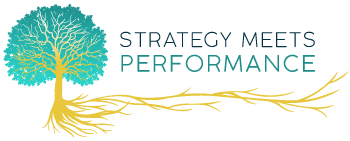“Speak your mind, even if your voice shakes,” Maggie Kuhn, American activist.
Speaking up for what you want can be one of the most difficult challenges we face in our professional and personal lives. It can also be the most transformative.
A coaching client of mine was recently feeling stuck about a work situation that was taking up much of her time. She had been coaching and mentoring a peer for the last year and it was starting to get in the way of completing her own work. From editing to re-writes to giving new ideas for how to approach new client work, “Jen” was basically taking on more than a full-time supervising role, without the title or pay. She estimated that in the last three months, it was taking up to almost 50% of her time, which required her to work late hours and on weekends to meet her own deadlines. Even if she was the manager, this would be overboard.
Having a relationship-oriented, harmony-focused style did not help matters. This is a great style that brings leaders success and it had certainly helped Jen grow in her company. The problem was that this shining strength had become overplayed into weakness and was causing her to lose time, energy and productivity.
Whenever Jen tried to lay down boundaries for “Kim,” Kim would flatter her with kind words such as, “Jen, your coaching makes such a difference for me, can you please keep helping me?” and “There is no mentor out there like you…I’m so lucky.”
These words made Jen feel guilty, as well as important, and then she would retreat from the powerful message she had prepared to deliver to Kim. Her boss was no help and was fine with her mentoring since she Jen completed all her work.
By naming her dissatisfaction, Jen was half-way there, but we had some more ground to cover.
I shared the concept of the, “Hero Syndrome” with Jen. This is a behavior where a person has an unconscious need to be liked, needed, appreciated or valued. To meet this need, the person goes above and beyond what he or she can realistically commit to, without laying down boundaries…and in the end, becomes overextended and sometimes bitter.
Below are four questions I asked Jen that I recommend you ask yourself if you are stuck and feel challenged by creating boundaries and speaking up for yourself.
- What is scaring me about speaking up?
- What is the worst possible outcome?
- What is the best possible outcome?
- What am I losing now and what would I gain if I spoke up?
After processing through these questions, Jen realized that she liked being a helper and mentor and did not want to hurt Kim’s feelings. After gaining clarity on this, she laughed and said that the worst outcome was not so bad if it meant Kim would be temporarily upset and possibly more empowered if she had to search for answers on her own.
She shared that the best outcome was having her time back. She resolved to speak up and create boundaries where Kim would have to seek help from others. She also realized that she needed to have this conversation in her personal life as well.
The next time you feel stuck in a situation where you feel uncomfortable with an unbalanced situation or someone’s expectations of you, go through these four questions to identify your fear and determine your “why” for creating change.
Maggie Kuhn was forced to retire from her career with the Presbyterian Church when she turned 65. She and her friends in similar circumstances founded the Gray Panthers, an organization dedicated to working on issues of concern to the elderly such as pension rights and age discrimination. She found the courage to speak up and stand up for her rights. You too, can test your bravery by speaking up — no matter how big or small your challenge.




